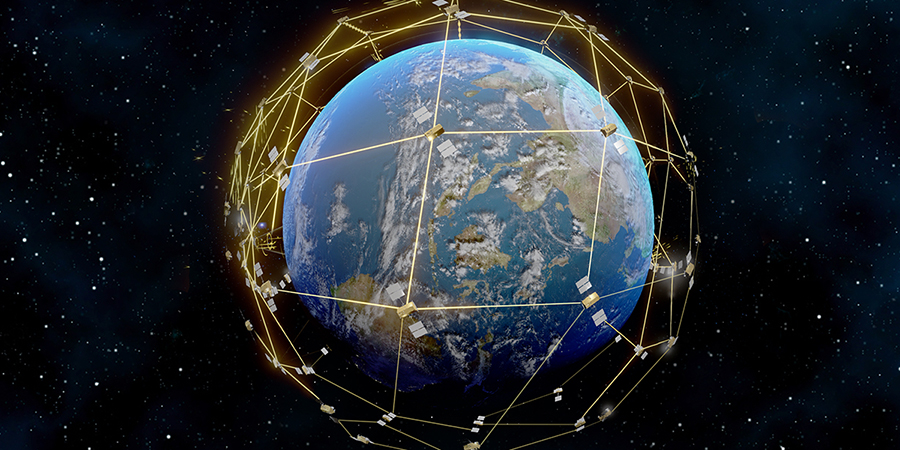Iridium Communications Inc., the only mobile voice and data satellite communications network that spans the entire globe, announced a historic achievement with the launch of the Iridium® Global Maritime Distress and Safety System (GMDSS) service. The system commenced operation on December 11th and with it, for the first time in history, Iridium has given seafarers a real-time emergency response and rescue service that works everywhere in the world. No other maritime emergency response system matches the coverage and real-time communications capability of the Iridium GMDSS service. The announcement came during a virtual press conference held featuring Iridium leadership, industry officials and experts.
GMDSS is an internationally regulated service, governed by the International Maritime Organization's (IMO) Safety of Life at Sea (SOLAS) convention. It provides life-saving assistance to seafarers in distress and has required equipment on board more than 60,000 ships today, with many ships carrying multiple terminals. Iridium's service functions much like an international SOS button, however, unlike other options it includes as standard real-time emergency voice calling service, distress alert (SOS button) and maritime safety information with Iridium's unmatched truly global coverage.
Iridium's GMDSS service is built on the company's upgraded $3 billion satellite network, completed in 2019, and utilizes the company's valuable L-band satellite spectrum. This spectrum serves as a weather-resilient complement to other satellite broadband capabilities on ships, aircraft and vehicles and is also a requirement for GMDSS terminals on SOLAS-class vessels. With over 1.4 million subscribers around the world, including communications systems on tens of thousands of ships and aircraft today, Iridium's GMDSS service launch epitomizes the company's commitment and tradition of creating a safer environment for the approximately 85% of the world that lacks any or reliable cell phone coverage.
The press event included remarks from Iridium CEO Matt Desch; International Maritime Organization Director of Maritime Safety Heike Deggim; International Mobile Satellite Organization (IMSO) Director General Captain Moin Ahmed; MAERSK Master Mariner and Senior Marine Specialist Captain Brian Soberg Petersen and Rescue Coordination Center of New Zealand (RCCNZ) Watch Leader and Senior Search and Rescue Officer David Wilson.
Here's how it works:
Once a vessel holds down the red 'distress' button, indicating that it needs assistance, a signal is immediately routed through the Iridium satellite network and delivered in moments to a designated Rescue Coordination Center (RCC). Unique to the Iridium system, this is then followed automatically by a distress phone call, allowing the vessel to immediately speak with the RCC. The RCC then can quickly understand the nature of the emergency, while also alerting nearby vessels and local search and rescue authorities to provide the required immediate assistance.
Iridium started the process to become a GMDSS service provider in 2013 and had to meet several objectives before formally ending what was a decades-long monopoly held by another satellite company. After being recognized by the IMO's Maritime Safety Committee to provide GMDSS service, Iridium has worked closely with its regulator, IMSO, to meet all conditions required for service introduction. Aside from technical integrations around the world, this has included the signing of a Public Services Agreement with IMSO in April of 2019, which details the conditions for IMSO to act as regulator and maintain oversight of Iridium's GMDSS services and a Letter of Compliance in December 2019 stating that Iridium was authorized to begin providing service when ready.
